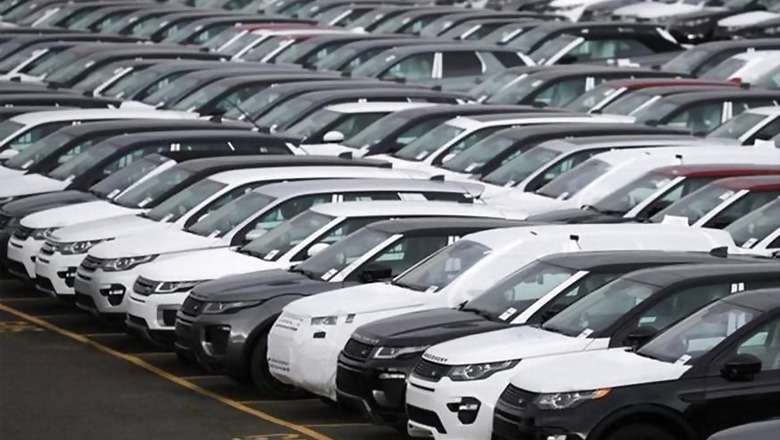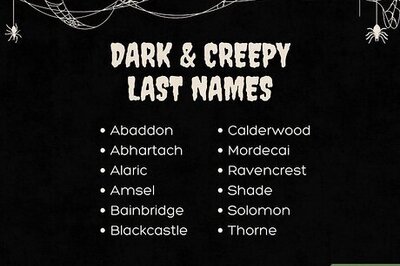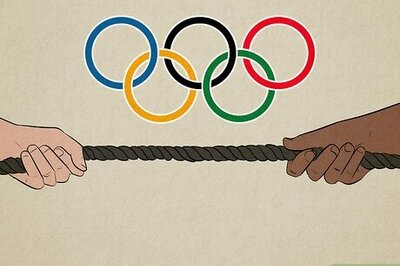
views
New Delhi: In a landmark verdict, the Supreme Court has held that hotels cannot deny compensation under the garb of "owner's risk" clause to its guest or visitors for theft of vehicle parked through its staff or valet.
The top court has held that the burden of proof lies on the hotel to explain that any loss or damage caused to the vehicles parked was not on account of its negligence or want of care. It said valet parking at the hotel is unlike parking facility where it is the owner's responsibility to find a suitable parking spot, park the vehicle correctly, return, and take out the vehicle upon display of the parking token/slip.
A bench of justices M M Shantanagoudar and Ajay Rastogi held, "Once possession of the vehicle is handed to the hotel staff or valet, there is an implied contractual obligation to return the vehicle in a safe condition upon the direction of the owner".
It held, "the hotel-owner cannot contract out of liability for its negligence or that of its servants in respect of a vehicle of its guest in any circumstance".
The bench said that even where there is a general or specific exemption clause, there remains a prima facie burden of proof on the hotel to explain that any loss or damage caused to the vehicles parked was not on account of its negligence or want of care as per provisions of the Contract Act.
"It is only after this burden of proof is discharged that the exemption clause can come into force. The burden of proving that such loss or damage was covered by the exemption clause will also be on the hotel," it held, while dismissing an appeal of a hotel against the award of compensation by consumer commission.
The top court's verdict came recently in a case where a person who had visited a five-star hotel had parked his vehicle through valet and upon his return he was informed that his vehicle had been driven away by another person.
Upon inquiry from the security staff of the hotel, the person was informed that his car was taken away by three boys, who had come to the hotel in a separate car.
The vehicle insurer settled the insurance claim with the man but the hotel denied to pay the value of the car and compensation for deficiency in services on the ground that their was clause on the parking coupon which said that it will be on "owner's risk".
The bench said that though the issue of liability of hotel owners for the loss of, or damage to goods of their guest has been a subject of judicial consideration for a long time but it has for the first time come up before the Supreme Court.
The top court dealt with common law rules where strict liability was fastened on the hotel owners for loss or damage to goods of guests and the prima-facie negligence rule wherein the hotel owner is presumed to be liable for loss or damage to the vehicle of his guest, but can exclude his liability by proving that the loss did not occur due to any fault or negligence on his part.
Dealing with the issue in India's context, the top court said that keeping in view the change in socio-economic conditions in the country, "we do not think it proper to impose a standard of strict liability upon hotel owners".
"Due to the growing population and the parallel economic expansion in the country, hotels and similar establishments are much more accessible to the public than they may have been a few decades ago. Hotels have also launched diversified services to keep up with changing times and to meet growing competition from alternate hospitality ventures," it said.
The bench, however, said, that at the same time, "it is true that persons visiting hotels and parking their cars in their premises or under valet parking, cannot be left at the mercy of hotel owners".
It said, as there is an "implicit expectation" between the hotel and the guest when a vehicle is handed over for valet parking that the vehicle would be taken reasonable care of, and returned in a proper condition.
"Thus, the failure to return the vehicle strikes at the root of the bailment relationship and gives rise to a prima facie case of negligence against the hotel," the bench said.
The bench dealt with two scenarios where the custody or possession of the vehicle is purposefully handed over to the hotel (valet parking) and where a person is merely allowed to park his car in a parking space.
It said that the laws of bailment apply in the valet parking case while the parking facility case is only a licensor-licensee relationship where laws of bailment or the prima facie liability rule cannot be applied.
Referring to parking facility cases, the bench said, "It is the owner's responsibility to find a suitable parking spot, park the vehicle correctly, return, and take out the vehicle upon display of the parking token/slip."
It said, "On the other hand, in a situation where the hotel actively undertakes to park the vehicle for the owner, keep it in safe custody and return it upon presentation of a parking slip in a manner such that the parking of the vehicle is beyond the control of the owner, a contract of bailment exists. Thus, the hotel would be liable as a bailee for returning the vehicle in the condition in which it was delivered."
The top court said that the parking token so handed over to the bailor (vehicle owner) is evidence of a contract, by which the bailee (hotel) undertakes to park the car and return it in a suitable condition when the vehicle owner so directs.

















Comments
0 comment